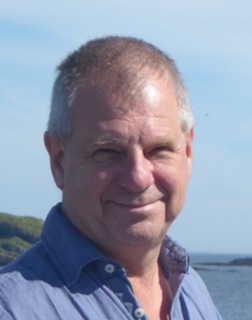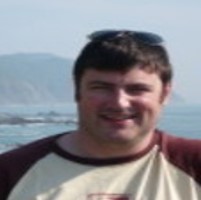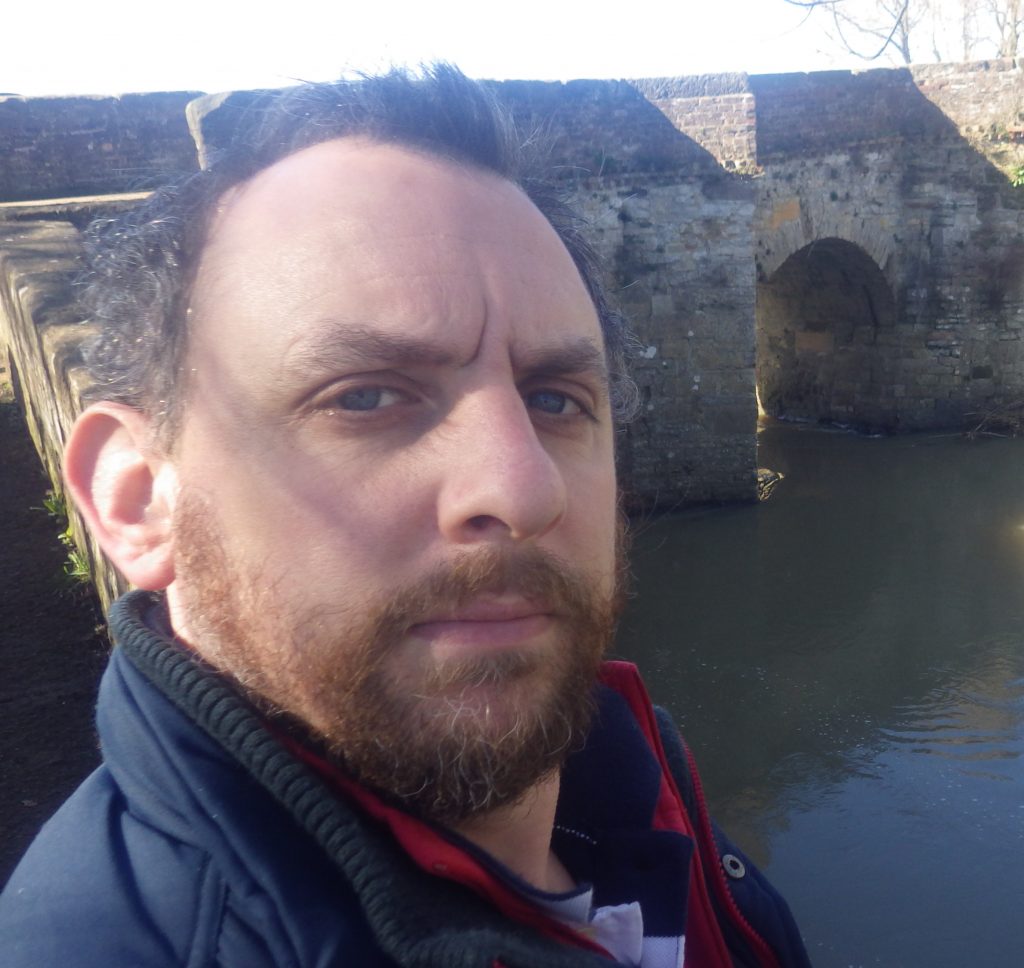
Professor Tony Brown
Principal Investigator
University of Southampton – Geography and Environmental Science
Arctic University Norway – Tromsø Museum
Tony Brown is a geoarchaeologist with interests in palaeoecology, human impact, subsistence and environmental change. He has worked in a wide variety of environments, periods and geographical areas from East Africa to Svalbard. Although his work was originally focused on floodplains and alluvial sites he has more recently worked on wetland and lake sites including projects on crannogs (artificial islands) and Medieval flooding. He has currently two major interests, sedaDNA and multi-proxies from lakes, as well as working on Jomon nutritional archaeology and environmental change in Japan. Professor Brown is currently also the PI on the ERC funded project TerrACE.

Dr Patrick Gleeson
Co-Investigator
Queen’s University Belfast – Built and Natural Environment
Patrick Gleeson is a archaeologist interested in the later prehistoric and medieval archaeology of Europe. His current research focus is the archaeloghy of cult, rulership, kingdoms and governance in the first millennium AD of northern Europe. He is particularly interested in the use of large scale remote sensing, G.I.S. and the application of new and novel methodologies at a landscape scale in these areas.He currently has ongoing field projects examing later prehistoric and early medieval cult landscapes, power centres, and royal landscapes in Ireland and Scotland, including Kedrah Fort, Lagore Crannog, Navan Fort, the Rock of Cashel and Knockainy.

Dr Andrew Henderson
Co-Investigator
Newcastle University – Sociology and Politics
I am a Physical Geographer who works at the interface of chemical, ecological and geological sciences, and my research aims to understand the patterns and mechanisms of climate change by using the ‘natural climate experiments of the past’ archived in lake and ocean sediments. In particular, much of my research has focussed on understanding Holocene Asian monsoon variability, (sub) arctic climate evolution and equatorial Pacific climate variability. To decipher past changes in climate I use the stable isotope and geochemical composition of a range of minerals, including carbonates, diatom silica and/or specific molecules (biomarkers). More recently, I have been looking towards ‘deeper time’ to capture the full range of natural climate variability capable in the Earth system, and have started to work on late Cenozoic sequences recovered from the Japan Sea on IODP Expedition 346.

Professor Inger Alsos
Co-Investigator
Arctic University Norway – Tromsø Museum
Inger Greve Alsos is the leader of the Ancient DNA lab and the Research Group in Taxonomy and Biodiversity at Tromsø Museum, UiT – Arctic University of Norway (UiT). Professor Alsos has especially focused on past and potential future distribution of arctic and subarctic plants. She has combined genetic data (AFLP fingerprinting, cpDNA sequences, and ancient DNA), species distribution modelling, and fossil data to explore dispersal routes, colonization frequencies, and long-term genetic effects of climate change. She is currently working on ancient DNA of lake sediments from N Europe and the Alps, as well as a full-genome reference library for the Norwegian and Polar flora.

Dr Gill Plunkett
Co-Investigator
Queen’s University Belfast – Natural and Built Environment
Interests:
- Reconstructing past environments and cultural activity through pollen and plant macrofossil analysis
- Reconstructing past climate change through peat-based proxies
- Tephrochronology
- Later Prehistoric Ireland
- Wetland archaeology

Dr Maarten van Hardenbroek
Co-Investigator
Newcastle University – Sociology and Politics
Maarten van Hardenbroek is paleoecologist with an interest in aquatic ecosystems and how they are impacted by environmental change – both natural or anthropogenic. He studies lakes and sediment records from lakes as archives of long term change. Some of my his involves monitoring modern systems, other projects study trends and events in the past 15,000 years, and several projects investigate the environmental history at archaeological sites. His study sites include arctic lakes in Alaska, Greenland, Norway, and Siberia, boreal lakes in Alaska, Sweden and Finland, and temperate lakes in the UK, Ireland, Germany, the Netherlands and Switzerland.

Dr Thierry Fonville
Research Fellow
University of Southampton – Geography and Environmental Science
Thierry Fonville is a palaeoecologist with a focus on how human impact has changed lake systems over the last 2000 years. He has previously worked on Celtic Connections and Crannogs (AHRC) and most of his research finds him working on material from the British Isles. Originally specialised in microfossils (diatoms and pollen) and basic sediment analysis (XRF, LOI) from lake sediments, recently his interest has shifted to sedaDNA analysis which allows him to reconstruct past livestock and vegetation at a high taxonomic level.

Dr Ben Pears
Research Fellow
University of Southampton – Geography and Environmental Science
Ben Pears is a geoarchaeologist with a specialism in the historic landscape and human-environment interactions within fluvial and marginal locations. Other current projects include Flood and Flow (Leverhulme) and TerrACE (ERC). Ben has also previously worked on the ‘Fields of Britannia’ (Leverhulme), reanalysing historic landscape continuity between the Roman and medieval periods. Technical specialisms include particle size analysis, pOSL, micromorphology, geochemical and elemental analysis, landscape and archaeological survey, geochronology and archaeological excavation.
Research Gate – https://www.researchgate.net/profile/Ben Pears
Google Scholar – https://scholar.google.co.uk/citations?user=94wM11cAAAAJ&hl=en
Academia – https://soton.academia.edu/BenPears

Dr Helen Mackay
Research Fellow
Newcastle University – Sociology and Politics
General research interests:
- Biogeochemistry of modern and past environments
- Human-environment interactions
- Palaeoclimatology
- Carbon and nutrient cycling within environmental systems
